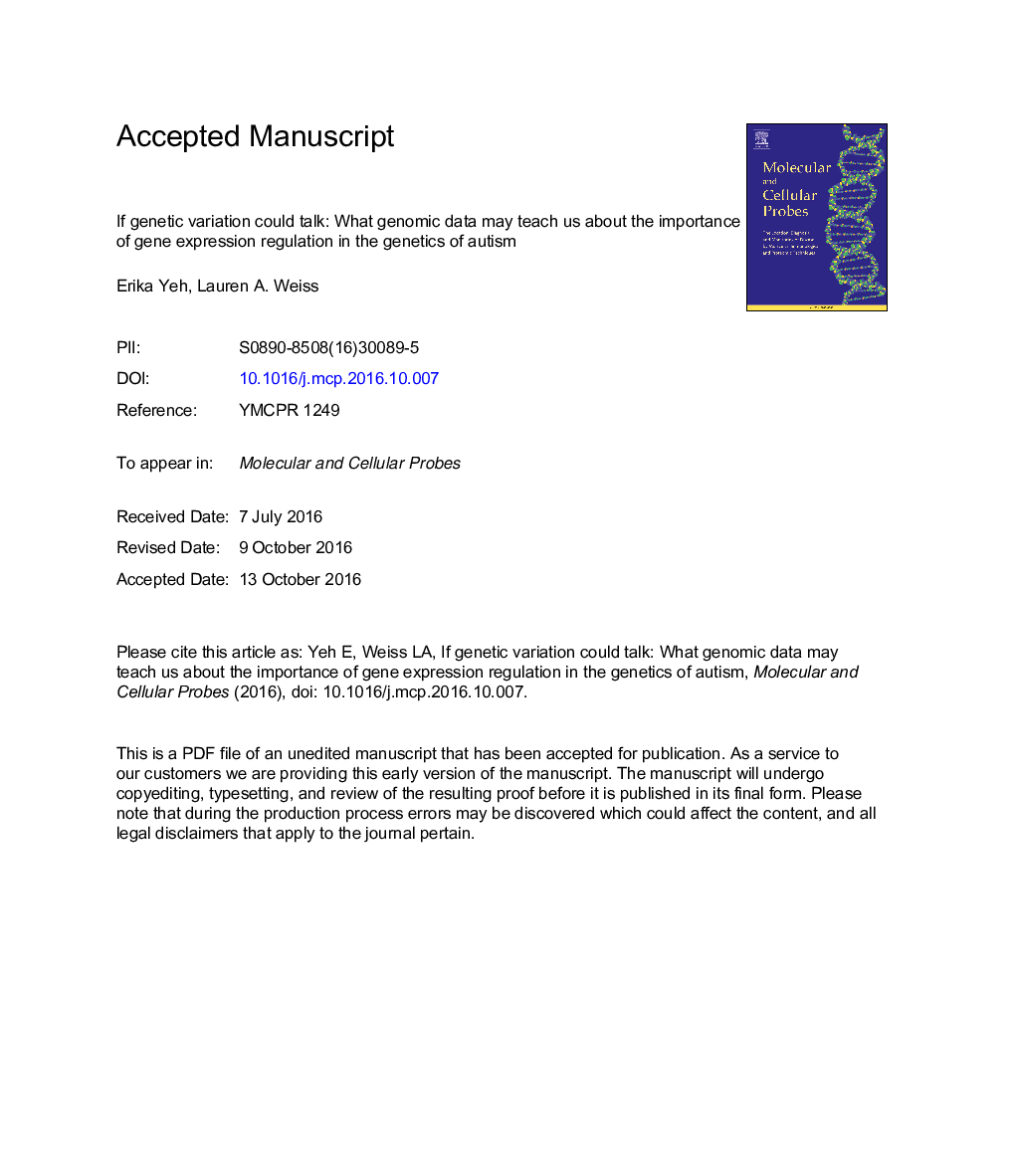| Article ID | Journal | Published Year | Pages | File Type |
|---|---|---|---|---|
| 8478781 | Molecular and Cellular Probes | 2016 | 37 Pages |
Abstract
Autism spectrum disorder (ASD) has been long known to have substantial genetic etiology. Much research has attempted to identify specific genes contributing to ASD risk with the goal of tying gene function to a molecular pathological explanation for ASD. A unifying molecular pathology would potentially increase understanding of what is going wrong during development, and could lead to diagnostic biomarkers or targeted preventative or therapeutic directions. We review past and current genetic mapping approaches and discuss major results, leading to the hypothesis that global dysregulation of gene or protein expression may be implicated in ASD rather than disturbance of brain-specific functions. If substantiated, this hypothesis might indicate the need for novel experimental and analytical approaches in order to understand this neurodevelopmental disorder, develop biomarkers, or consider treatment approaches.
Related Topics
Life Sciences
Biochemistry, Genetics and Molecular Biology
Cell Biology
Authors
Erika Yeh, Lauren A. Weiss,
